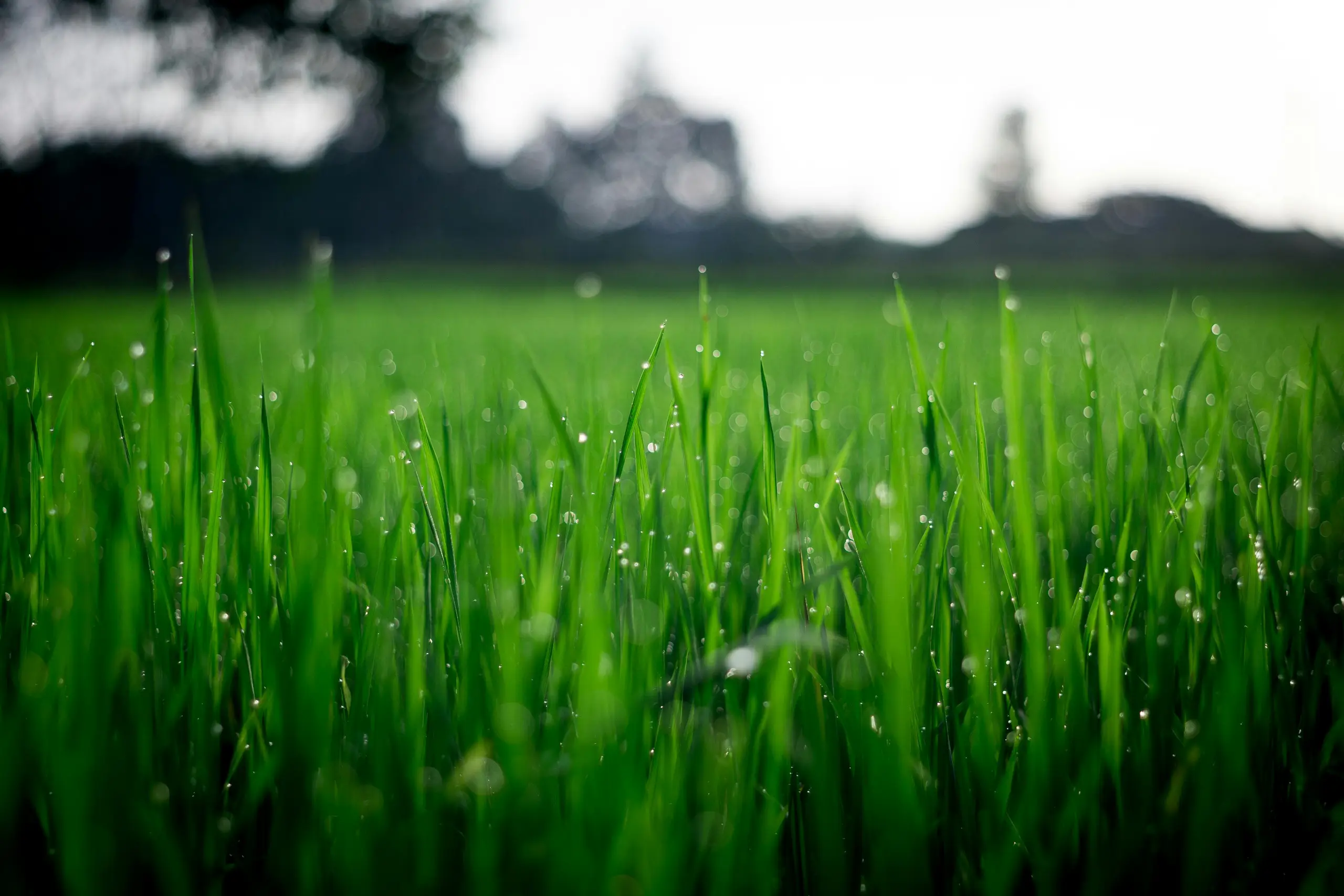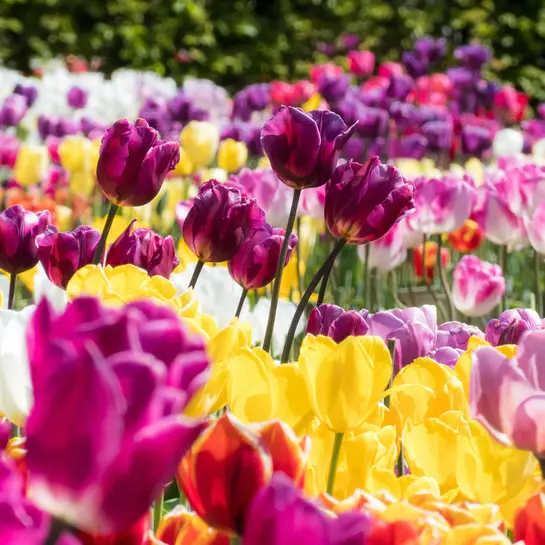Mulching Services Portland, OR
Expert Mulching Services in Portland, OR
What is Mulching?
Mulching involves applying a layer of material to the surface of soil in garden beds and around plants. This layer of organic or inorganic material helps to improve soil health, retain moisture, and enhance the overall appearance of your landscape. Mulching is a crucial part of garden maintenance that provides multiple benefits to plants and soil.
Benefits of Mulching
Mulching offers a variety of advantages for your garden and landscape:
- Moisture Retention: Mulch helps to retain soil moisture by reducing evaporation. This can decrease the need for frequent watering and protect plants from drought conditions.
- Weed Control: A layer of mulch acts as a barrier, suppressing weed growth by blocking sunlight and preventing weed seeds from germinating.
- Soil Temperature Regulation: Mulch insulates the soil, keeping it cooler in the summer and warmer in the winter, which helps to protect plant roots from extreme temperatures.
- Soil Enrichment: Organic mulches decompose over time, adding valuable nutrients to the soil and improving its structure and fertility.
- Enhanced Aesthetics: Mulching provides a neat and tidy appearance to garden beds, creating a unified and polished look for your landscape.
- Prevention of Soil Erosion: Mulch helps to prevent soil erosion by reducing the impact of rainfall on the soil surface and stabilizing the soil structure.
Types of Mulch
There are several types of mulch available, each with its own benefits and uses:
- Organic Mulch: Includes materials such as wood chips, bark, straw, grass clippings, and compost. Organic mulches improve soil health as they decompose.
- Inorganic Mulch: Consists of materials such as rubber, gravel, or landscape fabric. Inorganic mulches are durable and require less maintenance but do not improve soil health.
- Living Mulch: Refers to ground cover plants that serve as mulch. These plants can provide benefits such as weed suppression and soil enrichment while adding beauty to the landscape.
How to Apply Mulch
Proper application is key to maximizing the benefits of mulch:
- Prepare the Area: Clear the area of weeds, debris, and any existing mulch. Ensure the soil is moist before applying a new layer of mulch.
- Apply the Mulch: Spread a layer of mulch evenly around plants and garden beds. Aim for a depth of 2 to 4 inches to provide effective coverage without smothering plants.
- Keep Mulch Away from Plant Stems: Avoid piling mulch directly against plant stems or trunks, as this can cause rot and other issues. Leave a small gap around the base of plants.
- Replenish as Needed: Organic mulch will decompose over time, so it's important to replenish it periodically to maintain the desired depth and effectiveness.
Seasonal Mulching Tips
Adjust your mulching practices according to the season to ensure optimal results:
- Spring: Apply a fresh layer of mulch in early spring to prepare your garden for the growing season. This helps to retain moisture and suppress early weeds.
- Summer: Check the mulch regularly and add more if needed to maintain coverage. Mulch helps to keep soil moisture consistent during hot weather.
- Fall: Add a layer of mulch in the fall to insulate the soil and protect plant roots from winter temperatures. Mulch also helps to suppress winter weeds.
- Winter: Ensure that mulch remains in place throughout the winter to continue protecting plant roots and preventing soil erosion.
Why Choose Our Mulching Services?
Our professional mulching services are designed to enhance the health and appearance of your landscape. We use high-quality materials and follow best practices to ensure an even, effective application. Our experienced team will assess your garden's needs and provide expert mulching solutions that promote healthy growth and a beautiful landscape.
Contact us today to schedule your mulching service and experience the benefits of expertly applied mulch in Portland, OR.
Frequently Asked Questions
Mulching is an essential landscaping practice that helps maintain soil moisture, control weeds, and improve the overall health of your garden. In Portland, OR, where the climate can be quite dry and sunny, using the right type of mulch and applying it correctly can make a significant difference in your landscaping efforts.
In Portland, OR, organic mulches like wood chips, bark, and compost are excellent choices due to their ability to retain moisture and improve soil quality. Inorganic options such as gravel or rubber mulch can also be used for a more decorative look and lower maintenance.
Yes, mulch types that are good at retaining moisture, such as wood chips or straw, are ideal for drought conditions. They help reduce water evaporation from the soil, which is especially beneficial in the dry climate of Portland.
Pine needles can be used as mulch in Portland. They are good at retaining moisture and can add a nice aesthetic touch to your garden. They also decompose slowly, providing long-term benefits.
While most mulches do not attract pests, certain organic mulches like straw or grass clippings can sometimes attract insects if not maintained properly. It's important to keep mulches dry and free from excessive moisture to avoid pest issues.
Rubber mulch offers several benefits, including durability and low maintenance. It doesn't decompose, so you won't need to replace it often. It also provides excellent weed control and insulation for plant roots. However, it doesn't improve soil quality like organic mulches.
For optimal results, mulch should be applied in a 2-4 inch layer. This thickness helps suppress weeds, retain moisture, and regulate soil temperature. Avoid piling mulch against plant stems or tree trunks to prevent rot.
The best time to mulch in Portland is during the early spring or late fall. In spring, it helps retain moisture and suppress weeds as plants begin to grow. In fall, it provides insulation for plant roots during the cooler months.
It's generally a good idea to remove old mulch before applying new mulch. This helps prevent the buildup of disease and pests and allows the new mulch to integrate properly with the soil.
Yes, mulch can be used around vegetables and herbs. It helps retain moisture, suppress weeds, and keep the soil temperature consistent. Just ensure the mulch does not come into direct contact with the plants to prevent potential issues.
Mulch should be replenished as needed, typically once a year or when it starts to break down and thin out. Check the mulch layer regularly and add more to maintain a consistent 2-4 inch depth.
The dry climate in Portland makes mulching even more important as it helps conserve soil moisture and protect plant roots from extreme temperatures. Proper mulching can reduce the frequency of watering and support overall plant health.
There are no specific local regulations for using mulch in Portland, OR. However, it's advisable to check with local landscaping guidelines or homeowners' associations for any specific requirements or restrictions.
Yes, mulch can help with erosion control by stabilizing the soil and reducing runoff. It is particularly useful on slopes or areas prone to erosion, helping to keep soil in place during heavy rains or strong winds.
To prevent mulch from blowing away, consider using heavier mulches like rubber or gravel. You can also install edging around garden beds to keep the mulch contained and use a thicker layer to help it stay in place.
Old mulch can be composted or used as a base layer in garden beds. If you need to dispose of it, check with local waste management services in Portland for any guidelines on green waste disposal or recycling options.


